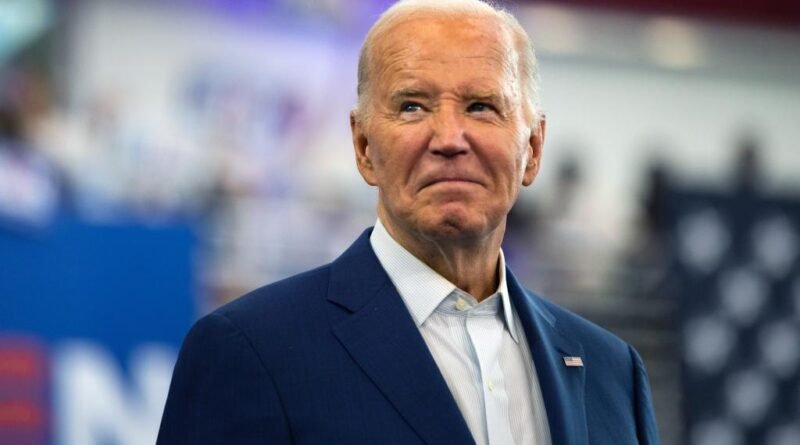Serious Democratic candidates can’t fix Biden’s problems

The attempts from the left to pressure Joe Biden out of the presidential race are likely reaching a peak, with Chuck Schumer reportedly visiting the elderly man’s residence to “forcefully” request him to step down.
Many Democrats are now searching for political saviors, but it may not be a simple task.
Why would any credible presidential contender — aside from Kamala Harris — want to enter the chaotic landscape of 2024?
Currently, figures such as Michigan Gov. Gretchen Whitmer or Pennsylvania Gov. Josh Shapiro have the luxury of waiting for the next four years, solidifying their governance in purple states, building national profiles, connecting with key demographics, and establishing organizations in crucial states.
A potential new candidate at this stage would need to quickly make a compelling case, relying on Biden’s ineffective campaign team, amidst what could be the most turbulent presidential election in over a century.
Additionally, they would have to surpass the first black/Asian-American/female vice president in history for the nomination.
It seems unlikely that any white Democrat with a promising future would want to risk sidelining Kamala Harris through a contentious convention.
Although I haven’t met her, the vice president doesn’t appear to have a temperament that would easily accept being pushed aside.
And in fairness, her main role is to step in for the president if needed, a responsibility that Democratic voters twice selected her for.
Even if a potential candidate manages to navigate these obstacles, they would mainly end up defending the Biden administration’s unpopular stance on issues like the border and the economy, rather than introducing a fresh political message.
Would any accomplished governor want to spend months fear-mongering about “Project 2025” and the potential end of democracy?
It seems unlikely to me, but one can never be certain.
If the Democrats lose the White House this year, the blame from the left will likely fall on the debate debacle for sinking Biden’s chances at re-election.
The exposure of the media’s portrayal of the president’s decline altered the dynamics of the race.
But Biden was already struggling to communicate his message and lagging behind Trump on key issues.
Biden’s decision to push for an early debate backfired significantly.
If he had waited, the media might have continued to shield his declining mental acuity until the end of the campaign.
Regarding Shapiro, it’s important to note that the Democratic Party currently presents challenges for Jewish individuals.
The party’s pro-Hamas faction, a group Biden was trying to appease, remains a significant factor to navigate.
With the rejection of Hamas sympathizers like Rep. Jamaal Bowman (D-NY) from Congress, the dynamics might shift in 2028.
If the Democrats face defeat — a scenario I’m not entirely convinced of — they may opt for a more moderate national ticket.
However, abstaining from the current race also poses risks: Kamala Harris might emerge as the victor. While I personally believe she’s a less strong candidate than Joe Biden at present, predicting the electorate’s response is unpredictable.
Overall, waiting until 2028 seems like a more strategic move for any accomplished Democrat.
David Harsanyi is a senior editor at The Federalist. Twitter @davidharsanyi



